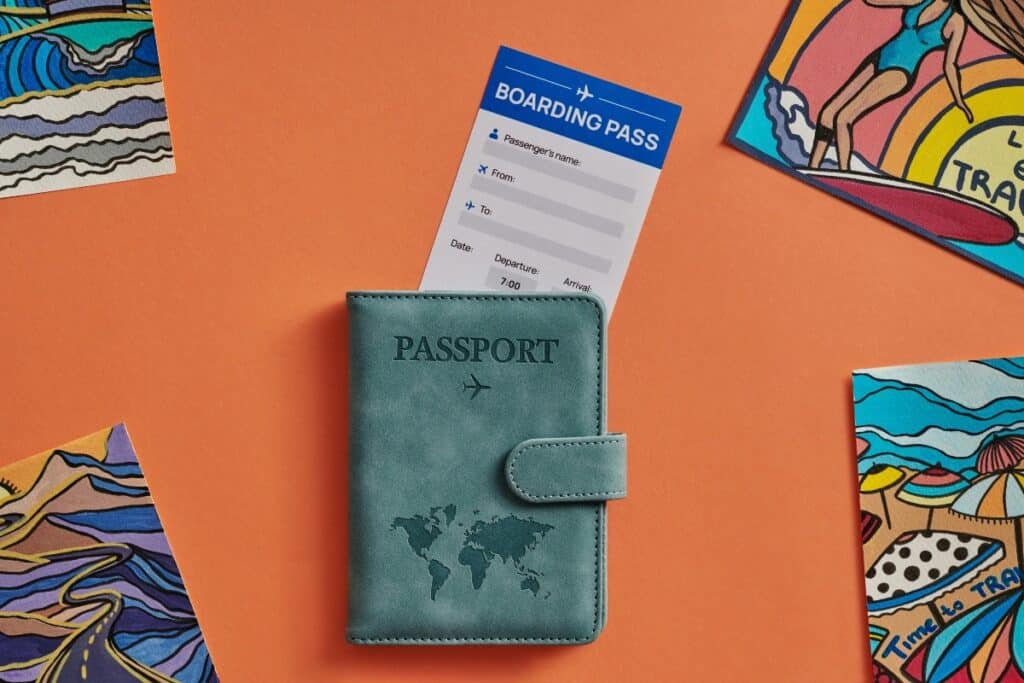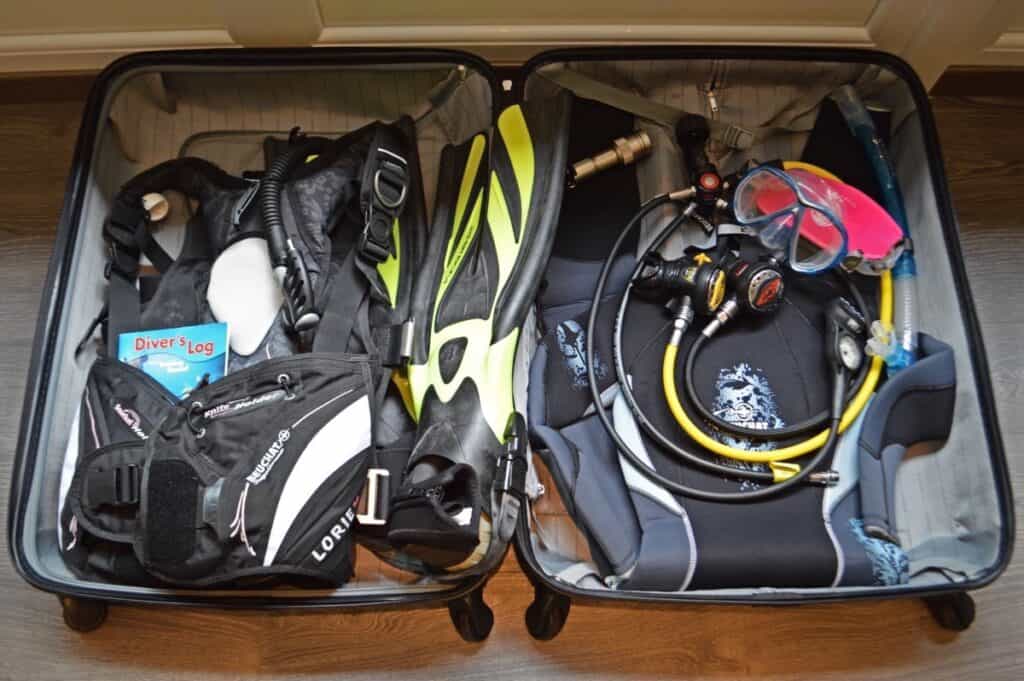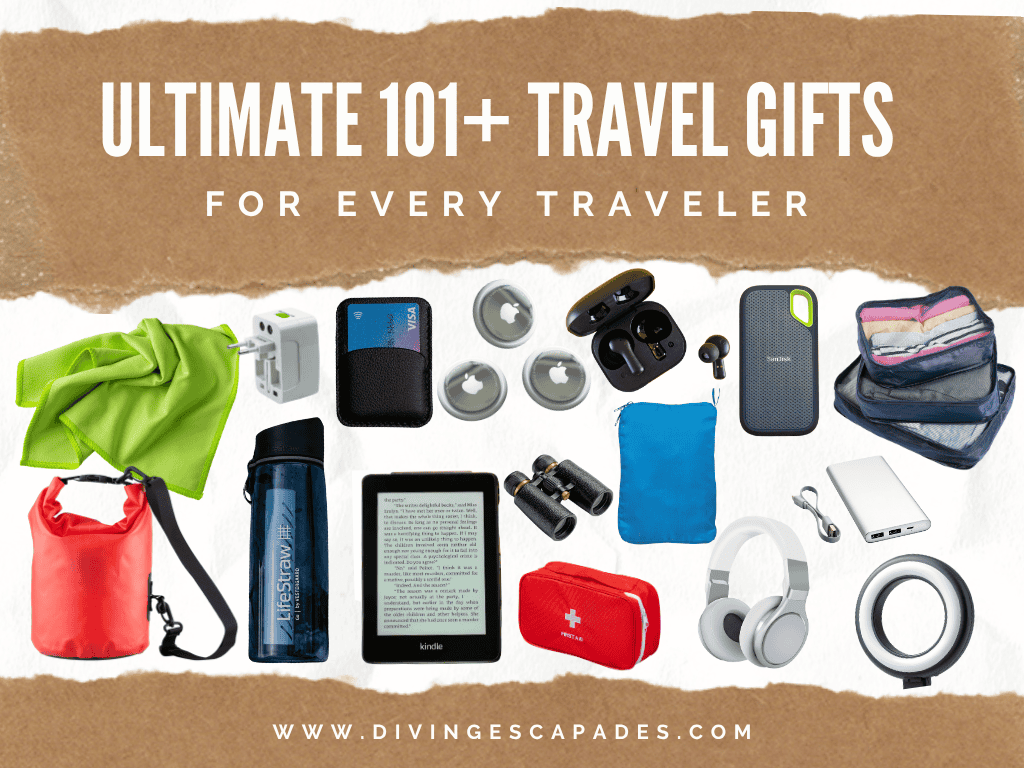

Traveling is so much easier (and way more fun) when you have the right tools, tips, and gear on your side.
Here are my go-to resources—starting with the one thing I never leave home without: peace of mind.
Safety First — Always
My top priority for any trip is safety—especially since many of my adventures involve scuba diving, freediving, or snorkeling. That’s why I always recommend starting with travel insurance that covers these activities.
My go-to insurance: DAN (Divers Alert Network) Insurance – the one I personally use and highly recommend.
Why I trust DAN:
- Covers both regular travel and dive travel
- Includes plans for diving and non-diving emergencies
- Option to cover your family if they’re traveling with you
- Peace of mind knowing diving accidents (which can be costly) are covered
- Your membership also supports dive safety research, medical training, and global emergency response programs
What I pay:
- About $100 per year
- Covers 90 days of travel abroad for diving and non-diving emergencies
- Works out to around $1/day—worth every cent for the security it gives
For me, DAN is more than just insurance—it’s a way to give back to the diving community and support research that keeps all of us safer underwater.
If you don’t have DAN insurance yet, check out their plans below and get covered before your next adventure.

My Favorite Trip-Planning Tools
Once your insurance is set, here’s what I use to plan, book, and make the most of every trip.
Plan & Organize
- Ultimate Adventure Travel Planner (FREE) – My 30-page printable PDF with packing lists, budget trackers, itinerary pages, and pro tips so you spend more time enjoying your trip and less time stressing.
Download it here:
Book Your Stay & Transport
- Booking.com – My go-to for hotels, apartments, and even flights. Super easy to filter by budget, location, and availability.
- Omio – Perfect for finding trains and buses across Europe, the U.S., and Canada.
- RentalCars.com – When public transport isn’t an option, I book here for reliable rentals in over 160 countries.
- DiscoverCars – A great comparison tool to check rental options side-by-side before booking.
Find the Best Things to Do
- Get Your Guide – For tours, activities, and day trips, from boat tours to scuba diving adventures.
- Viator – Another solid choice for booking tours worldwide—easy, quick, and often with instant confirmation.
- GoCity – City passes that save you money on attractions. Great for mixing topside adventures with your dive trip (e.g. If you’re heading to Oahu in Hawaii, you will love GoCity passes.).
Airport Comforts
- Priority Pass – Lounge access at airports worldwide, no matter your ticket class. You can pre-book lounges here for stress-free layovers and snacks before flights.
Sustainable Travel Products I Always Pack
As an ocean lover, I like to travel light—but never without these eco-friendly essentials:
- Reusable Water Bottle – Cuts down plastic waste and saves money.
- Foldable Silicone Cup – Perfect for coffee on the go without disposable cups.
- Reusable Shopping Bag + Wet Bag – For market runs, snacks, and keeping damp gear separate.
- Bamboo Cutlery & Reusable Straws – Handy for street food and takeaway.
- Reef-Safe Sunscreen – Protects your skin without harming coral reefs.
- Packable Microfiber Towel – Dries fast, packs small, and doubles as a beach or yoga towel.
More Travel Wisdom You Might Like
I’ll keep adding more tips, tricks, and resources here so you can explore smarter, stress less, and leave nothing behind except epic memories (and maybe a few footprints in the sand… and bubbles).





